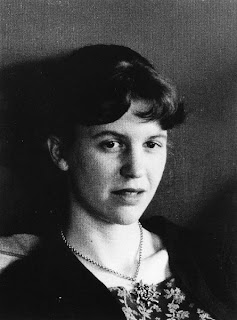After World War II, the Vietnamese fought for and
won their independence from France. Starting in 1964 and finished in 1975, Vietnam war was held between communist
North Vietnam, usually called Viet Cong, and capitalist South Vietnam. The South Vietnam was supported by troops
from the United States, Australia, New Zealand, and South Korea while the North
Vietnam was assisted by the USSR. Although not as well equipped as South
Vietnam, North Vietnam had advantage of large numbers of soldiers.
 |
| http://www.whitehouse.gov/sites/default/files/first-family/masthead_image/36lj_header_sm.jpg?1250885677 |
At that time, American President Eisenhower sent
foreign aid and military advisors to South Vietnam because according to domino theory, he was afraid that if Vietnam fell to communism, all of Southeast Asia
would also fall. However, the U.S. troops were defeated because they
underestimated the tenacity of Viet Cong and his skilled jungle fighters. Moreover,
the war reached its climax during President Lyndon B. Johnson’s
presidency in the 1960s. He was attempting
to operate the war for his own purpose of gaining more votes through a
series of actions like the bombing of North Vietnam, sending U.S. troops into
Vietnam and so on.
 |
| http://www.gcsehistory.org.uk/modernworld/vietnam/vietnamnapalm1966www.jpg |
In March 1965,
President Johnson took an action of attacking North Vietnam and launched
Operation Rolling Thunder, a bombing raid. America
thought North Vietnam was weak enough to be easily defeated and scheduled to
bomb eights weeks but it lasted for three years because they miscalculated Viet
Cong’s power. At first, the bombing raids gave not only the South Vietnamese
support and relief, but also the will to fight the Viet Cong. In the Operation
Rolling Thunder and other bombing raids, the Americans bombed various targets,
including main transporting trails, major fuel depots, and important factories,
trying to decrease the infiltration of Communist troops, but it was useless and
attracted much opposition. Ho Chi Minh trail is the main transporting system
for manpower and supplies; thus, it was heavily bombed throughout the war.
Making poor
decisions and unable to achieve American’s expectations, President Lyndon B.
Johnson became one of the most unpopular presidents. During 1960s, he bombed
North Vietnamese, thinking it would do good to the South Vietnamese and America,
sent numerous of soldiers into Vietnam, hoping they could defeat the North Vietnamese,
and promote the Great Society Program, wishing to improve all American’s life;
however, none of his proposals came true. In March 1968, President Johnson
decided not to seek re-election since he was doing badly during his
administration by announcing, “I shall not seek, and I will not accept, the
nomination of my party for another term as your President.” At the same time,
he began to bring soldiers back from Vietnam, wishing everything could end
peacefully.











